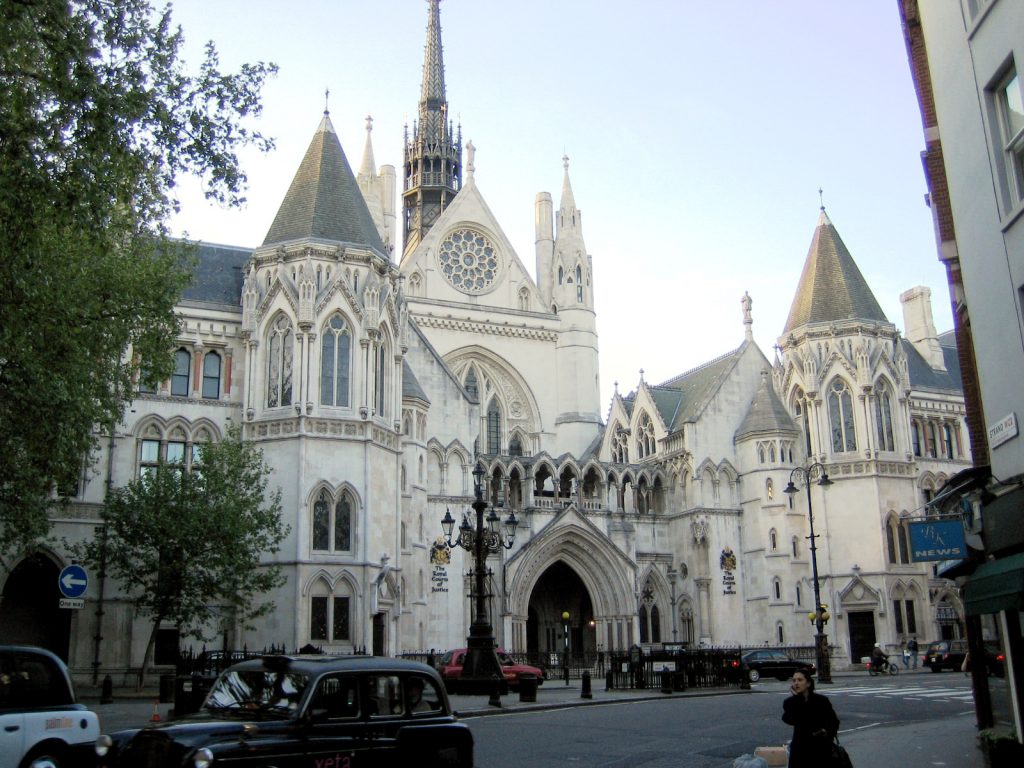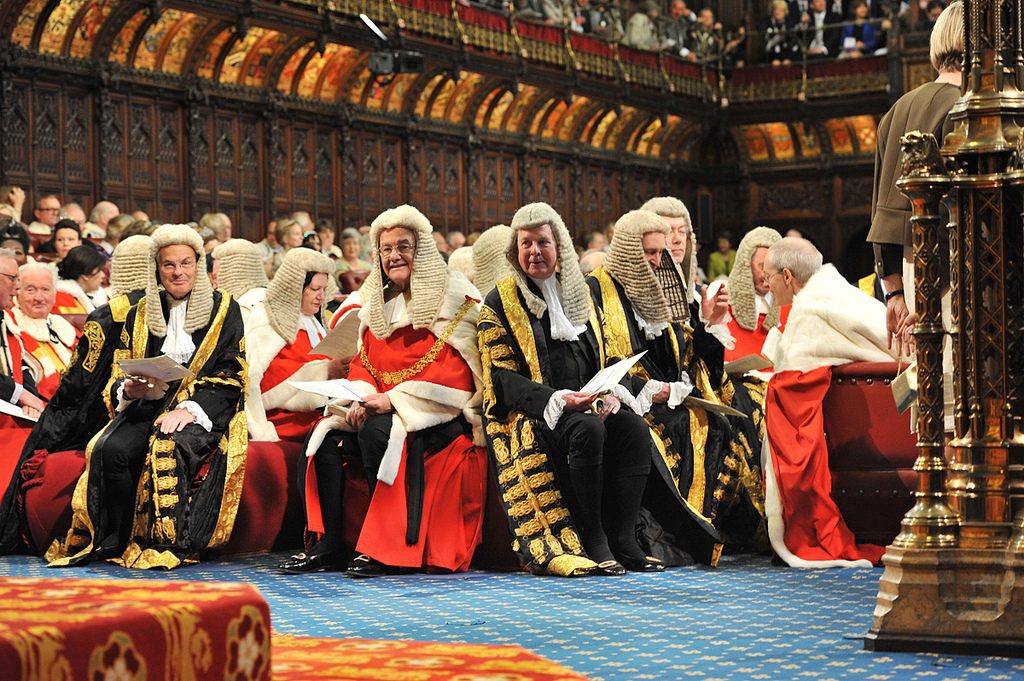
Professor Phil Syrpis, Professor of EU Law, University of Bristol
Last week’s judgement in the High Court is a ringing endorsement of the sovereignty of Parliament. It asserts that ‘Parliament can, by enactment of primary legislation, change the law of the land in any way it chooses’ (at [20]).
It explains why the ‘subordination of the Crown (i.e. executive government) to law is the foundation of the rule of law in the United Kingdom’ (at [26]), including references to the bedrock of the UK’s Constitution, the Glorious Revolution, the Bill of Rights, and constitutional jurist AV Dicey’s An Introduction to the Law of the Constitution.
The Crown has broad powers on the international plane, for example to make and unmake treaties, but as a matter of English law, these powers reach their limits where domestic law rights are affected. EU law, by virtue of the European Communities Act 1972 (described again as a constitutional statute), does indeed have direct effect in domestic law. As a result of the fact that the decision to withdraw from the European Union would have a direct bearing on various

The Royal Courts of Justice in London, home of the Senior Courts of England and Wales. Credit- Anthony M. from Rome, Italy – Flickr
categories of rights outlined in the judgement (at [57]-[61]), the Crown cannot, without the approval of Parliament, give notice under Article 50.
This strong statement of the rights of Parliament ought, in a rational world, to appeal to the instincts of leave supporters. At least part of the point of voting to leave the European Union was to ‘take back control’ from unelected bureaucrats in Brussels, and to return that power to the UK. In the same way as ‘we’ want to have control over the decision-making process in the EU, ‘we’ might also want to have some control over the actions of our (at least arguably, in this instance, also unelected) Government.
The High Court’s judgement amounts to the simple assertion that, according to our Constitution, ‘we’ exercise this control via Parliament (and not, for example, via a ‘mandate’ given to the Crown by the result of the referendum (see [105]-[106])). The reaction of many on the leave side – and the Daily Mail deserves a particular mention for Friday’s front page – is a sad indictment of the state of debate in this country.
Unless the Government changes its argument when the decision is appealed (and the hearing is due in early December), the Supreme Court, too, is likely to decide that, according to the UK’s own constitutional requirements, the decision to trigger Article 50 is for Parliament, not the Government. Already, there is fevered speculation surrounding the likely reactions in Government, in the Commons and the Lords, and the devolved assemblies.

Members of the judiciary in the Lords chamber ahead of the Queen’s Speech 2013. Credit – Houses of Parliament, Flickr
And yet, the judgement proceeds on the basis of ‘common ground’ between the parties that ‘a notice under Article 50(2) cannot be withdrawn, once it is given’ [10]. This, it turns out, is significant for the High Court. The reason why the Crown cannot give notice under Article 50, is that domestic law rights will, inexorably, be affected by the decision. In various parts of the judgement, the decision to give notice under Article 50 is treated as equivalent to the decision to withdraw from the EU.
Despite the existence of this common ground in the High Court, there is a growing body of expert opinion, from the President of the European Council Donald Tusk, to Lord Kerr of Kinlochard (involved in the drafting of the text Article 50), to Professor Paul Craig , to David Allen Green in the Financial Times, which takes the opposite perspective, agreeing with the view expressed to the House of Lords in February, by Professor Derrick Wyatt QC and former ECJ judge Sir David Edward, that a notice under Article 50 is reversible.
In previous pieces, I have considered the reversibility of Article 50, emphasising the need for clarity and discussing the role of the European Council and the European Court of Justice on this question of interpretation of EU law.
One strategy which may still be open to Government lawyers, is to argue that Article 50 is indeed reversible: that the Article 50 notice may be rescinded by the UK in accordance with its constitutional requirements. Such a line of argument would make it harder for judges to maintain that the decision to give notice under Article 50 inexorably affects domestic law rights, and therefore harder to substantiate the claim that the decision does not come within the purview of the prerogative powers on the Crown on the international plane. The potential legal and political ramifications of such a stance merit close scrutiny.

Legally, it opens the way for the Supreme Court to reverse the decision of the High Court, and hold that the Government is able to trigger Article 50. However, it is likely, or at least possible, that once the issue of the reversibility is contested between the parties, the Court will decide to refer a question to the Court of Justice in Luxembourg.
Were it to do so, I predict that the Court of Justice would interpret Article 50 using its customary purposive approach, guided by an integrationist ethos, and decide to afford the withdrawing state the chance to reverse an Article 50 notification. It may decide to impose certain conditions; for example, so that the effet utile of the two-year time limit is not undermined, or, by insisting that it is conditional on the taking of certain procedural steps, up to and including the approval of remaining Member States and/or the EU institutions.
But that, in itself, would not be enough to decide this case in the Government’s favour. It is not at all easy to predict whether the Supreme Court would decide that a reversible Article 50 notification is a matter for Parliament or Government; my sense is that it would turn on a determination of whether the decision to trigger Article 50 has a strong or direct enough connection with rights protected in domestic law.
The political issues for the Government are complex. On the face of it, it would appear not to be in the Government’s interests to argue for the reversibility of a notice given under Article 50. While it might win the prize of control over the decision to trigger Article 50, it might only do so, in part at least, as a result of a decision of the European Court of Justice (the irony is inescapable).
The legal process will of course take time – meaning that Theresa May might not be able to stick to her timetable and trigger Article 50 by the end of March 2017. Arguments surrounding whether we should Brexit would then have free rein throughout the negotiation process, continuing alongside arguments relating to the substance of the deals on withdrawal and on the future relationship between the UK and the EU.

Check-In and passport control at the Eurostar station Bruxelles-Midi/Brussel-Zuid (Belgium). Credit – Opihuck/Wikimedia Commons
Some leave supporters who become disappointed, or angry, with elements of the emerging deals (and, given the nature of the leave campaign, it is difficult to see how it will be possible for the Government to strike a deal which appeals to all) might decide that we would, after all, be better off remaining in the EU. In the current political climate, the legal victory would doubtless appear Pyrrhic.
But, the alternative is worse. Let us assume that Article 50 is triggered (by Parliament or Government) on the basis of the understanding that the process is irreversible. The contours of the leave deal would again begin to take shape over the course of the next two years. Some leave supporters would again be likely to be disappointed. Only this time, the option of remaining in the EU would not be there; the choice would be between a disappointing deal and no deal at all. The Government would find it impossible to dissociate itself from the economic and political consequences.
The predicted discomfort of the UK Government might be thought to indicate that it would be in the interests of the EU institutions and the Governments of the other Member States to argue, for example before the European Court, that Article 50 is, as the High Court assumed, irreversible. But again, the position is nuanced.

Unknown/Pexels.com (CC0 1.0)
If the aim of the Article 50 negotiation is to seek to punish the UK in the light of the Brexit vote, then an irreversible process is, from the EU’s perspective, indeed best. One of Theresa May’s few cards would have disappeared, rendering her poker game ever more difficult.
But, that is not the approach which the EU should adopt. Their stated aim is to develop the best possible future relationship with the UK. This involves striving for the best possible withdrawal deal, in the light of the stance adopted by the UK negotiators. It also involves affording the UK the option to reverse its notification. This would after all be in line with what EU leaders have been saying consistently, both before and after the referendum vote: they would prefer the UK to remain.
This is a time of crisis. Strong, far-sighted leadership is required, on the part of both the UK and the EU. The High Court’s judgement reminds us of the importance of decision-making in accordance with the rule of law and the separation of powers. That law should endeavour to create a framework within which sensible political accommodations may be reached. And our leaders and political representatives need to rise to the task confronting them.
This post originally appeared on the University of Bristol Law School blog.
